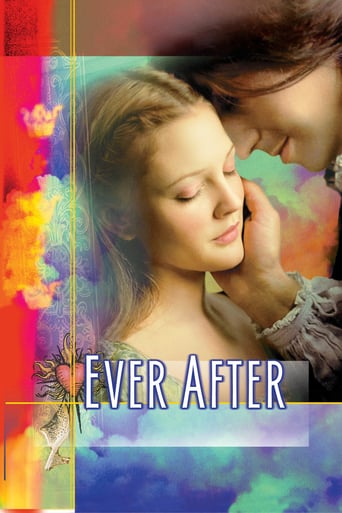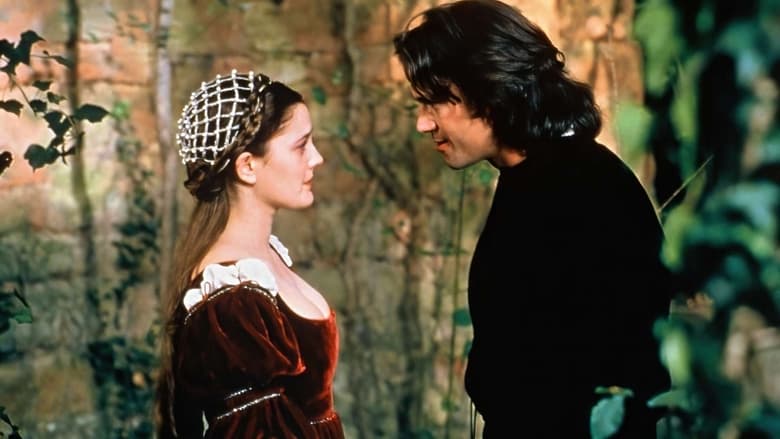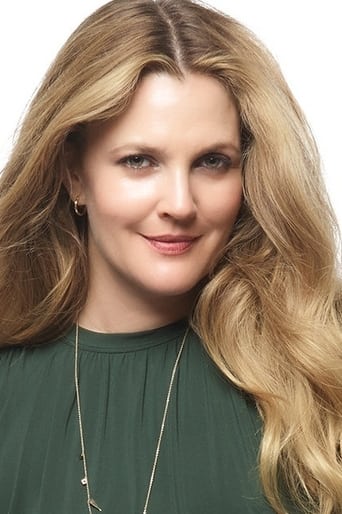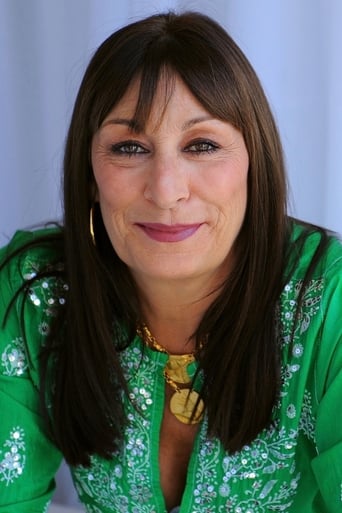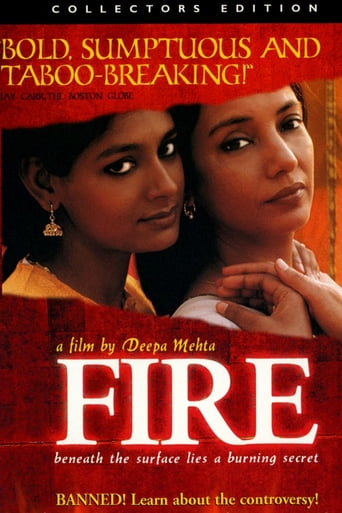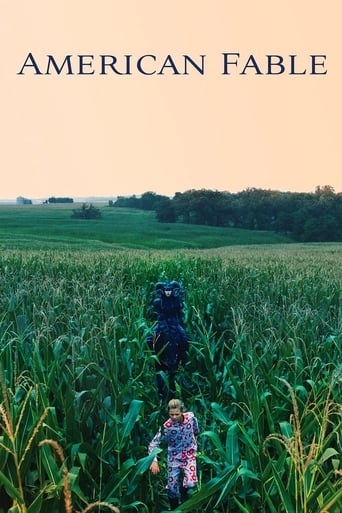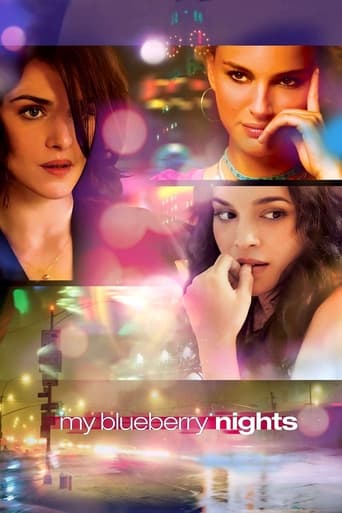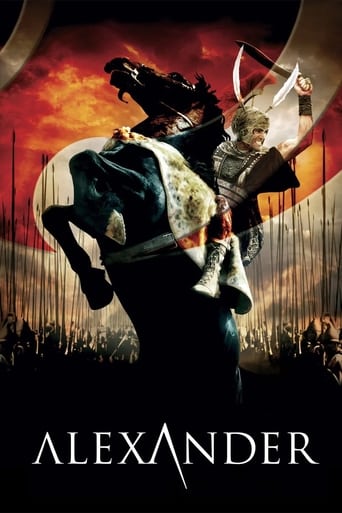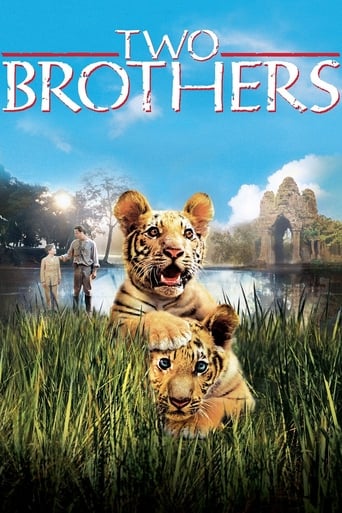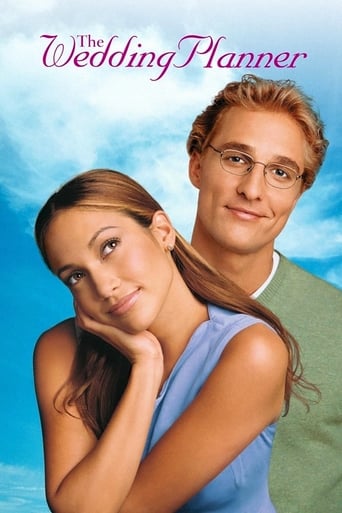EverAfter (1998)
Danielle, a vibrant young woman is forced into servitude after the death of her father when she was a young girl. Danielle's stepmother Rodmilla is a heartless woman who forces Danielle to do the cooking and cleaning, while she tries to marry off the eldest of her two daughters to the prince. But Danielle's life takes a wonderful turn when, under the guise of a visiting royal, she meets the charming Prince Henry.
Watch Trailer
Cast


Similar titles
Reviews
I have a special affection for Disney's classic Cinderella (1950), but I acknowledge its main message is problematic, with a female protagonist passively enduring a lifetime of abuse only to be rescued first by magic, then by marriage. I can understand the purpose of a version with a more proactive heroine. Which is what EverAfter attempted to do... except it's garish, tone-deaf and poorly cast. Looking at director Andy Tennant's uncannily bad resume, it's hardly a surprise.Drew Barrymore is appealing in a girl-next-door kind of way but, with her tomboyish look and feel, she comes across as a teenager playing dress-up. Far worse is Dougray Scott as the prince. Scott is a handsome chap, I guess, but there is something cold, almost reptilian about his glare, which made him ideal as the anti-Cruise villain in Mission Impossible 2 - not so much as a romantic lead. Anjelica Huston at least is better cast as the baleful stepmother.Tennant glues scenes to each other with no regard for build-up or coherency. In a twist worthy of a soap opera, the heroine is sold into slavery (?) to some evil ruffian. Once inside his castle, she grabs a sword and orders him to unchain her. You now expect some kind of narrow escape sequence, evading guards and so on... except, the movie just cuts to her walking out of the castle with a satisfied smirk. Wait, what? Did the evil guy turn to stone? Did he live all alone in that huge fortress? It defies not just logic, but also the basic rules of storytelling; it's grotesquely anticlimactic.Even visually, here's an example of how little thought went into EverAfter. During the final confrontation, the stepmother is dressed in the same shade of deep green as the nice stepsister, while the wicked stepsister wears red. It doesn't make sense! You want to VISUALLY ASSOCIATE the two evil characters and make the good one STAND OUT. It may be a nitpick, but the movie is littered with this kind of sloppy choices.The movie features Leonardo da Vinci as a secondary character. The Italian genius has not been lucky as far as his cinematic appearances are concerned: between this, the Bruce Willis bomb Hudson Hawk, a cretinous potboiler like The Da Vinci Code and Paul W. S. Anderson's The Three Musketeers, it's ironic how a man of such legendary intelligence tends to be referenced only by stupid movies. His most enjoyable cameo may be in the comedy Non Ci Resta Che Piangere... where he is portrayed as dumb. Go figure... poor Leonardo.5/10
A romance-comedy retells the story of Cinderella, directed by Andy Tennant (SWEET HOME ALABAMA 2002, HITCH 2005 and FOOL'S GOLD 2008), in an attempt to revamp the fairytale with a historical context, in the early 16th century, France. A beautiful young girl Danielle (Barrymore), who is being treated as a servant by her stepmother, the baroness Rodmilla (Huston) after the sudden death of her father Auguste (Krabbé). Upon a chance meeting with Prince Henry (Scott), a romantic feeling has seized both of them, but Danielle is in her courtier disguise, in a moment of desperation, she uses her dead mother's name to hide her real identity.While running from an arranged marriage from his parents King Francis I (West) and Queen Marie (Parfitt), Henry decides to marry the girl his heart really wants, so Rodmilla has an eye to the main chance to marry off her own daughter Marguerite (Dodds), and she has no qualms to hamper the true love between Danielle and Henry at all cost. The storyline is basically the same with the fairytale, but all the fantasy elements have been entirely trimmed off, no fairy godmother, no pumpkin carriage, even the slipper has no magic, instead, a real historical figure, Leonardo da Vinci (Godfrey) is introduced as the game-changer, with his painting MONA LISA, which was actually purchased by King Francis I.One refreshing upgrade of the story is that Danielle's characteristic has been rendered a modern retouch, she is no longer a damsel in distress, she is the ill-fated Cinderella, but she doesn't need her knight errant to rescue her out of her misery, on the contrary, it is her who saves Henry from a gypsy mob by pluckily carrying him on her shoulder, and near the coda, it is also herself who defeats the Gothic-looking merchant Pierre Le Pieu (O'Brien) even before Henry's arrival, set side by side with Kenneth Branagh's flashier Cinderella (2015), EVERAFTER is unwaveringly innovatory to elevate its heroine out of the cliché and more modest in its art production.So much for the good intention, the script still seems unbalanced, Marguerite's wilful turning against her mother is the work of a sophomoric writing, so is Henry's sudden change of mind, these parts are unfortunately being rushed out without thoughtful polishing. Barrymore's winsome appearance can smoothly erase viewers' memories about her problematic child-star past, and the film does revive her career, at the age of 23, she manages to pull off a second life on the big screen. This movie also marks Dougray Scott's Hollywood breakthrough, but one might argue, his sombre mien doesn't quite fit the role as an unsophisticated prince (maybe Jude Law would be a better casting choice), his Prince Henry is not dewy-eyed enough to believably amazed by Danielle's class-defying viewpoint and her extremely ample vigour for life, and his natural reserves doesn't help either.As always, the evil stepmother is the most delectable part, and who can portray unbearable haughtiness better than the almighty Anjelica Huston? She is absolutely a hoot to watch, period. Melanie Lynskey's Jacqueline, Danielle's other step-sister, is another surprise, she is more defiant towards her mother and more sympathetic to Danielle, and wonderfully throws the last bon mot "of course not, mother, I'm here just for the food." in the otherwise bromide-laden ending.
The film Ever After is told by an elderly woman who talks to the Brother Grimns and Charles Pennault on Danielle who would soon be an inspiration for their fairy tale Cinderella(which we all grew and love today). But this version of Cinderella isn't like any other Cinderella adaptation.Released in 1998 the film stars Drew Barrymore(sporting a British accent) as a young woman named Danielle who lives with her evil stepmother played by Angelica Huston and her daughters(one of Danielle's stepsisters is nice to her, the other stepsister treats her like dirt). Danielle father you see married a baron (who is Huston's character)and he tragically dies of a heart attack as he was going away on a business trip and he collapsed and died as Danielle and the baron watched in horror.Meanwhile later on in the film Danielle meets a handsome prince named Henry played by Dougray Scott, whom she had no idea was a prince as she threw something at him and she apologized to him.She disguises herself as a countess and meets Henry again as she tries to save a man who is been sold off,and Henry assumes that Danielle is a countess. But will he love Danielle for her real self and not as a countess named Nicole(who is the name of Danielle's deceased mother)?. Overall I really enjoyed this version as well as it had more screen time with Danielle and the prince BUT I have a few issues with it.1. What is Leonardo Di Vinci got to do with Cinderella? Cinderella has a fairy godmother NOT a famous painter.2. Shouldn't Henry assume that the countess was Danielle since he seen her face before?3. The romance between the prince and Danielle was very well done and Danielle is a very headstrong girl who can stand up to herself,but Cinderella wasn't like that at all.Bottom line I must be the only person who prefers Lily James' outtake of Cinderella but I grew up with the tale of a young servant girl who wins the heart of her prince and doesn't meet him until the ball and she loses a glass slipper and doesn't tell the prince who she is or her name.This was a good movie too but like I said I prefer Lily James' version.7/10Kudos though for not having Ever After predicable even though parts of it was as I knew Danielle would be with the prince in the end.
Rating: A+With a great script, captivating plot, and accomplished actors, Ever After is an entertaining and highly enjoyable historical romance film. Given the medieval scenery and attire, the film pulls the audience directly into the bustle of the late eighteenth century. From sword fighting, romance, comedy, and drama, this film seemingly pulls all of these aspects together into one great film. Each time that I watch this movie, I feel connected to the main character Danielle, played by Drew Barrymore. Through each climatic scene where she faces set-backs and adversity I want her to succeed and find romance in the end. This film, and more specifically Barrymore's acting, has the ability to make the audience feel sad when Danielle is rejected by the prince in front of the entire kingdom or when she is sold off to pay her step mother's debt and happy when the prince saves her and asks for her forgiveness. Although the film is set in the eighteen century, it is easy to relate to Danielle, who despite hardships, has managed to make the most out of her seemingly horrible life. This film is a retelling of the fairy tale Cinderella. With evil step mothers and sisters, an extravagant ball, a pompous prince waiting to marry for love, and even with a glass slipper, the film aligns itself with the same occurrences of the classic fairytale. Noticing the cyclical nature of fairy tales and how they are often redone, it is important to take a look at the common theme between fairy tales and their remakes. In both the fairytale version and in the movie Ever After, the main theme that is shared is that evil behavior will have repercussions and that good will always prevail. In both of the films, the step mothers serve as an oppressive force to the main protagonist. However, in Ever After one of the step sisters helps Danielle, yet comes short of advocating against her mistreatment. Nonetheless, in both of the films, the main protagonist succeeds and finds love when truly all hope seems lost. The glass slipper is probably the most apparent similarity between the two films, which indicates the importance of the symbol. At the end of Ever After, Prince Henry played by Dougray Scott, after begging Danielle for forgiveness, kneels down and replaces the slipper Danielle lost at the ball. This also happened in the classic story. Yet in Ever After, Prince Henry rejected Danielle for falsely imposing as a countess. In the final scene, Prince Henry, after saving her from Pierre Le Pieu, a vile man who is taken with Danielle played by O'Brien, has to ask Danielle to forgive him for his past actions. Although the core message has transferred between the two films, there are differences. In Ever After, Danielle does not represent the typical female fairytale character waiting idly for the price to sweep her off of her feet. Danielle has read books and often times challenges Prince Henry about various topics. Her conviction astounds Prince Henry, who falls in love with her personality over her looks. They say that behind ever great leader, is a strong woman providing support, and that notion is clearly represented in the movie, as Danielle offers her ideas on how to improve the kingdom. Ever After offers the audience the possibility to escape into a new and exciting world, where true love always prevails and evil people are always punished. In contrast to the real world, Ever After offers the audience a chance to escape into a different time period and a new life where there is always a happy ending.

